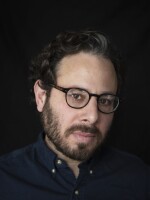AUDIE CORNISH, HOST:
It's ALL THINGS CONSIDERED from NPR News. I'm Audie Cornish.
ROBERT SIEGEL, HOST:
And I'm Robert Siegel.
When it comes to the Democratic Party establishment, you can't get much more established than Andrew Cuomo. He is the second Cuomo to be governor of New York. He was once married to a Kennedy. But these days, Cuomo is sparring with the party's progressive wing personified by New York City Mayor Bill de Blasio. Democrats all over are watching closely, as NPR's Joe Rose reports.
JOEL ROSE, BYLINE: In New York, Mayor Bill de Blasio swept into office this year with an unapologetically liberal agenda. At the top of the list: raising taxes to fund universal pre-kindergarten for all New York City kids. Here he is on MSNBC.
MAYOR BILL DE BLASIO: We have to get there. I propose a way to do it in a big, bold, consistent way.
ROSE: De Blasio wants to tax New Yorkers who earn more than half a million dollars a year to pay for his pre-K plan, but that idea is running into opposition in the state capitol. And the main obstacle, his fellow Democrat Andrew Cuomo.
GOVERNOR ANDREW CUOMO: We both want pre-K and the question was how do you pay for it.
ROSE: That was Cuomo on WNYC. Cuomo does not want to raise taxes on the wealthy. He plans to pay for universal pre-K out of the state's regular budget. In fact, Cuomo, who is running for reelection this year and may be planning a run for president, wants to see tax cuts instead.
CUOMO: Homeowners in the State of New York paid the highest property taxes in the United States of America in terms of absolute dollars, just what people pay.
ROSE: By all accounts, Andrew Cuomo and Bill de Blasio our friends who known each other for 20 years. But their disagreements have flared up into a full-blown fight, complete with dueling press conferences, photo ops and rallies.
(SOUNDBITE OF CHEERING)
BLASIO: And we're going to bring it home for New York City, aren't we?
(SOUNDBITE OF CHEERING)
ROSE: Some see this as a preview of ideological debates that are looming inside the Democratic Party.
PETER BEINART: We are seeing a pendulum shift in which the terms our debate economically are shifting left.
ROSE: Peter Beinart teaches political science and journalism at the City University of New York. He says Cuomo is a moderate Democrat in the tradition of Bill Clinton, liberal on social issues but fiscally conservative. Beinart says progressive Democrats, like Bill de Blasio and Massachusetts Senator Elizabeth Warren, are charting a different path.
BEINART: That it's both right and perhaps even politically smart for Democrats to be more open about redistributing wealth, given the changed political situation and the new realities of growing income inequality.
ROSE: There's evidence that rank-and-file Democrats may be receptive to this message. Gallup found that 23 percent of voters identified themselves as liberal in 2013, the highest number since the firm began measuring ideology more than 20 years ago. But among Democratic politicians, de Blasio and Warren look more like outliers. While the Republican Party has been steered to the right by the ascendance of the Tea Party, Democratic insiders insist the progressive wing doesn't wield that kind of power.
JEFF SHESOL: I don't see a schism in the Democratic Party. I see differences of opinion.
ROSE: Jeff Shesol is a former speechwriter for Bill Clinton. He thinks that what worked for a few Democrats in New York and Massachusetts, may not play so well in the rest of the country.
SHESOL: I'm not sure how instructive that is really for Democrats in red states or even in so-called purple states, like Colorado. I don't think that a Bill de Blasio strategy is going to be very helpful to a Mark Pryor in Arkansas, or any of the other red state Democratic senators who are facing tough elections.
ROSE: Shesol says Hillary Clinton, or whoever wins the Democratic nomination in 2016, would be well advised to run toward the middle.
Still, Peter Beinart thinks the progressive wing is already provoking debate about the direction of the party, which is likely to intensify as President Obama's second term winds down.
BEINART: You're going to see it on questions of civil liberties and national security. And I think you're going to see it on the question of how much you're willing to challenge Wall Street and corporations, to respond to economic inequality and poverty. So I think the Cuomo-de Blasio divide is something of a harbinger of things to come.
ROSE: As for the fight over universal pre-K in New York, the outlines of a deal are emerging that would fund universal pre-K without raising taxes. On its face that looks like a win for Governor Andrew Cuomo. But the state might not be having this debate at all without a push to the left from Bill de Blasio.
Joel Rose, NPR News, New York. Transcript provided by NPR, Copyright NPR.


